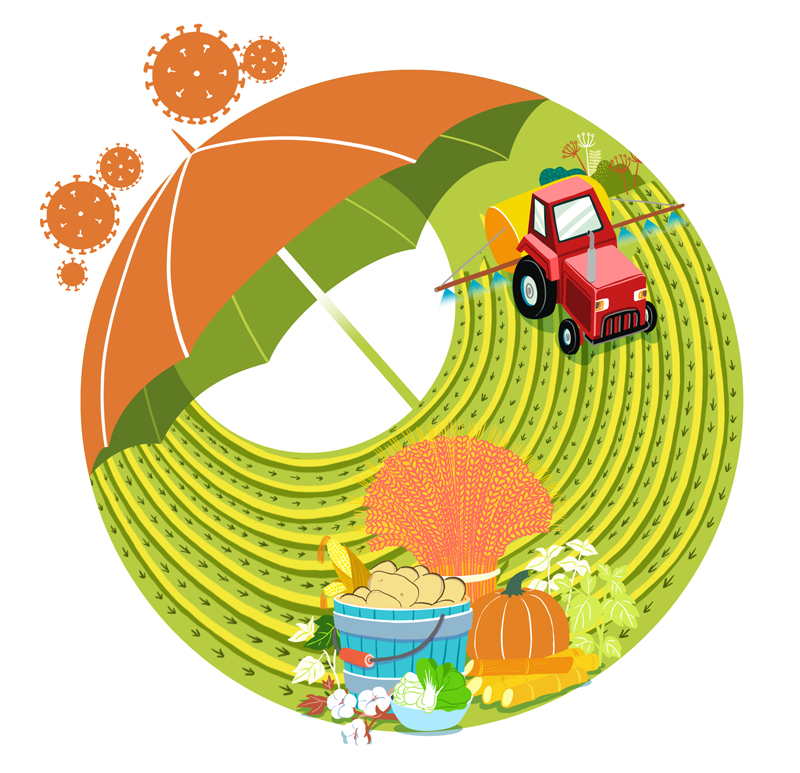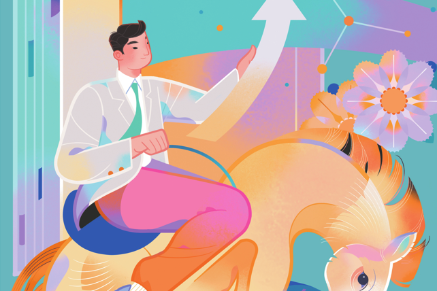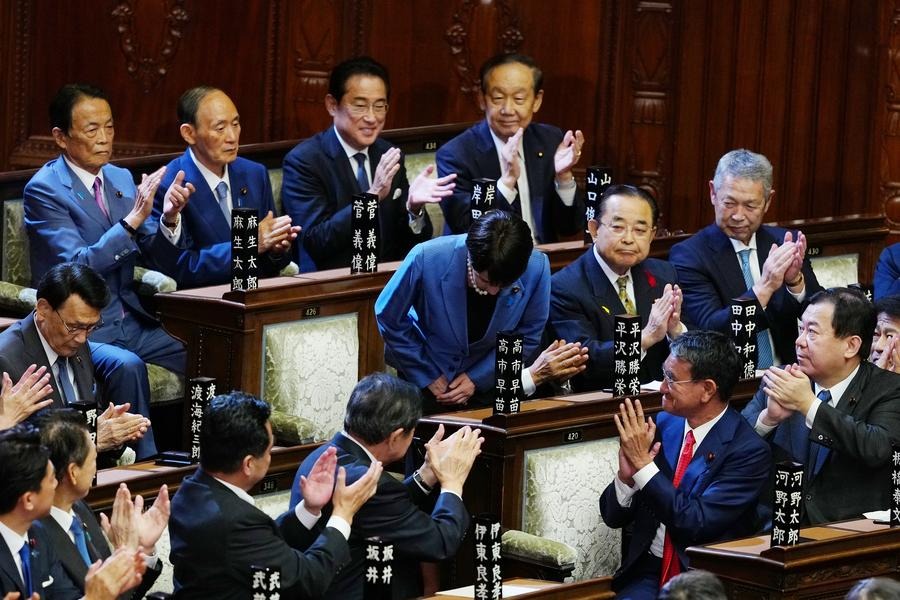Protecting food security for the vulnerable


The Interim Economic Outlook of the Organization for Economic Cooperation and Development two weeks ago confirmed that the impact of the novel coronavirus outbreak on China's and the rest of the world's economies is going to be extremely severe. Restrictions on movement of people, goods and services, and containment measures such as factory closures have sharply reduced manufacturing and domestic demand in China. As a result, the OECD has lowered China's GDP growth projection for this year, from 5.7 percent in November 2019 to 4.9 percent earlier this month.
Similarly, because of China's weight on the global economy and the rapid spread of the novel coronavirus globally, the OECD has projected global GDP growth to drop from an already weak 2.9 percent in 2019 to 2.4 percent in 2020.
Little known about impact on non-economic sectors
While the economic impact of the coronavirus pandemic on the Chinese and world economies is being carefully monitored and assessed, little is known about the impact of the outbreak on "non-economic" sectors such as "development".
As a representative of the International Fund for Agricultural Development, an organization mandated to rural development, poverty reduction and food security, let me share some personal reflections on the possible impact of the outbreak on the achievement of the Sustainable Development Goals, particularly on SDG 2: food security, both in China and globally.
Since very limited data are currently available, making such an assessment extremely difficult, my considerations are thus mainly based on my personal observations in China.
Considering the agricultural sector contributes to about 7 percent of China's GDP, the impact of the epidemic on China's overall economy would equally affect the agricultural and food security sector. In this regard, we can anticipate a shorter-term, or immediate, impact; and a longer-term impact, which potentially can have global consequences.
Food supply stable despite curbs on people's movement
The restrictions on people's movement and the closure of factories have had an impact on the circulation, and thus availability, of food and agricultural products, and disrupted several value-chains with a potential impact on prices. Counter-intuitively, however, despite the limited circulation of food, food supply has overall remained stable, and-with limited exceptions, food prices in China have remained overall stable as well. This can be probably attributed to the large food stocks at the time of the outbreak, when movement restrictions began to be implemented.
However, the longer the restrictive measures continue, the more stress would be put on the whole system. If the restrictions on people's movement are not lifted soon, food stocks are likely to reduce, which could lead to price hikes.
Obviously, the impact would be most severe on the poorest and most vulnerable segments of the population, who have fewer means to deal with the prolonged negative effects of the restrictive, preventive measures (particularly on labor/wages and production and, eventually, on household incomes).
Medium-to longer-term potential global impact
Beyond the short-term impact of the implemented measures on food supply, if the current situation persists and restrictions on people's movements continue, agricultural "production" could be affected, with longer-lasting and deeper impacts on food availability, prices and, ultimately, overall food security.
March is the beginning of the planting season in many provinces of China. If, because of the movement restrictions, the planting season is missed or delayed, this year's food production would likely suffer, and the pressure on agricultural imports will increase-with consequences on global food availability and prices.
The risk of ending up facing a situation similar to that of the 2008 food crisis, although remote, is a possibility not to be completely overlooked. In fact, China's leaders are aware of this potential risk, and therefore are giving high priority to early resumption of agricultural production.
Even in the likely case of China not experiencing food shortages, global food security could be challenged if, as a consequence of the pandemic, other countries, especially the developing ones, start experiencing stress on their agricultural production capacity and circulation of food.
Possible solutions and dilemmas
China needs to resume normal economic activities, including food production and distribution, as soon as possible. The immediate restrictions on the movement of people and goods need to be lifted where possible, so that farming can resume and the food supply chain function normally without major delays.
The Chinese government is encouraging resumption of normal activities, particularly in areas least affected by the coronavirus outbreak. But local governments face a dilemma: if they relax the well-implemented preventive measures too early, they could risk a second wave of the epidemic; and if they delay relaxing the preventive measures, they could further slow down the economy.
China also needs to put in place a safety net system to lessen the impact of the outbreak on the most vulnerable segment of society. This group of people may have disproportionately suffered from prolonged reduction in incomes, increased health costs, and limited access to food. Measures may include paying for their healthcare; extending the terms of payment for loans, bills and taxes; providing paid sick leave; and offering other forms of economic support including one-time cash transfers.
Need to help countries with low fiscal capacity
Obviously, low-income countries have limited fiscal capacity to implement safety net systems that could reduce the impact of the coronavirus outbreak on the most vulnerable section of their societies, thus increasing their exposure and vulnerability to the outbreak, including the possible limited access to a sufficient quantity of affordable food. So the potential impact of the pandemic on the food security of low-income countries could be possibly greater.
And that's why it is important to invest in the poorest and most vulnerable people, notably the rural poor, strengthen their resilience and enhance their capacity to cope with shocks, and to support developing countries to cope with the possible impacts of the outbreak.
The author is a country director in the Asia and the Pacific Division at the International Fund for Agricultural Development.
The views don't necessarily reflect those of China Daily.



































